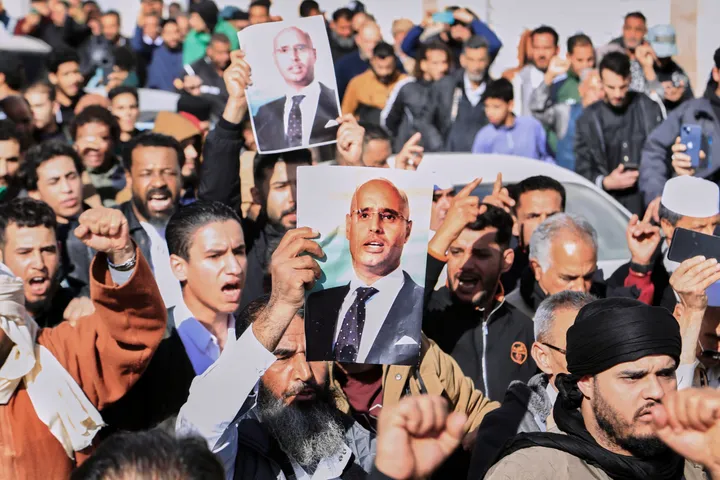By Abdulwasiu Hassan
What does Bukayo Saka do when he's not tearing up the Emirates turf with his tricks and flicks? He teams up with a charity to fund life-altering surgeries for children in Nigeria, from where his parents migrated to London
Or take the case of Jay-Jay Okocha, the legendary Nigerian player who, as his once-PSG teammate Ronaldinho gushed, "made the football listen to him". Back home, Okocha harnesses the beautiful game's pull to raise awareness about the importance of education and peace.
Lagos boy Victor Osimhen, now the deadliest Super Eagles striker and Napoli's mainstay, takes a step further: he wants to help disabled people across Africa. "If you don't have a leg, we will create a new one for you. If it's an arm, we will create a new one for you," he said at an event in Nigeria this March.
Surging wave
Of late, Nigeria has been witnessing an unprecedented wave of emigration, with middle-class professionals who were already doing well in the country making up most of the numbers. "Japa", which in local parlance means relocating to another country, was quite the rage last year.
Nigerian interior minister Olubunmi Tunji-Ojo, quoting the Higher Education Statistics Agency, says 99,985 Nigerian students travelled to the UK in the past five years.
As Africa’s most populous country continues to reel under development challenges, its burgeoning diaspora can provide the country with the helping hand it needs.
Making a mark
From Ngozi Okonjo Iweala, director general of the World Trade Organisation (WTO), to Amina J. Mohammed, deputy director general of the United Nations; from US deputy secretary of the treasury, Wally Adeyemo, to African Development Bank president Akinwumi Adesina, the Nigerian diaspora is making its mark around the globe. And their success is rubbing off on Africa's largest economy.
The country's diaspora remittance, the highest in sub-Saharan Africa, was US $21.9 billion in 2022, according to President Bola Ahmed Tinubu. A remarkable figure, considering it's just about half of the national budget of $39.9 billion that Tinubu's predecessor, Muhammadu Buhari, presented in 2021.
Cream of the crop
Analysts say one of the reasons most Nigerians do well abroad is that they are among the best the country has to offer in terms of talent. “These emigrants are either already experienced or talented in the fields of academia and research. On top of that, they are hardworking," Dr Yakubu Musa Wudil, an assistant professor at King Fahad University of Petroleum and Minerals, tells TRT Afrika.
Kamal Tasiu Abdullahi, a PhD candidate in economics at Istanbul University, feels the fantastic work ethics of the diaspora play a key part in their positive attitude to work.
"Having grown up in Nigeria, many of us have been exposed to various obstacles, ranging from problems with the country's infrastructure to enormous social expectations. This, in turn, makes us stronger and more resilient. Thus, it's easy for us to adapt, prevail and prosper when confronted with unique challenges in other countries," he says.
Potential spin-offs
Some analysts believe Nigeria is yet to fully harness the potential of its diaspora and turn the exodus of professionals from a seeming setback into a blessing. "I think the government is wanting in this matter. Every serious country knows that its diaspora is its asset," says Dr Wudil.
Nigeria can tap into its diaspora’s experience and knowledge, especially in the education and industrial sectors, he adds.
Dr Ishaka Shitu Al-Mustapha, a Nigerian based in the UK, tells TRT Afrika that Nigeria needs to formalise the diaspora remittance structure to make it attractive to the community to plough back money into the economy and create a stable investment platform for more people to follow suit.
Abdullahi feels Lagos can encourage returnee entrepreneurship through tax benefits, better access to financing and removal of regulatory hurdles.
"The government can issue diaspora bonds, which tap into the patriotic fervour of the expats and thus help raise funds to develop infrastructure projects, concerning roads, electricity and internet connectivity," he says.
This, in turn, will restore the diaspora’s confidence in the government and lure more Nigerians back home.
Private efforts
Many Nigerian expats have already been playing a part in helping their compatriots back home, individually or in clusters. One such group, Arewa Youth Mentorship, is aimed at bridging the information gap in terms of "opportunities when it comes to jobs and scholarships".
The programme makes use of digital platforms to keep people, mostly graduates and undergraduates, back home aware of development opportunities.
"We now have more than 100 young people who have secured full or partial scholarships to study in various countries, including the US, Saudi Arabia and China," says Dr Wudil.
As John Utaka, a former Super Eagles forward and currently a youth coach at Montpellier, said while unveiling his foundation that provides scholarships to young footballing talent, "I believe that giving back to society is essential because I was in the system before I travelled abroad."























